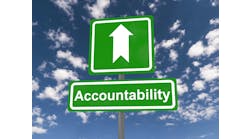On July 17, Seema Verma, Administrator of the federal Centers for Medicare & Medicaid Services (CMS) announced, in an article on the Health Affairs Blog, the new numbers for participation in the Pathways to Success program within the Medicare Shared Savings Program (MSSP) for accountable care organizations (ACOs).
“To create multiple opportunities for providers to learn about the new participation options available under Pathways to Success in the first performance year, CMS is providing two application cycles in 2019,” Administrator Verma wrote on Wednesday. “Today, I am pleased to announce ACO participation data under Pathways to Success for the July 1, 2019 start date. CMS approved a total of 206 ACO applications for this start date, increasing the total number of Medicare fee-for-service beneficiaries who receive care from health care providers in ACOs from 10.5 million to 10.9 million. Forty-one of the 206 ACOs (20 percent) are entirely new; 25 (12 percent) are re-entering after a period of time when they did not participate as an ACO; and the remaining 140 (68 percent) are renewing their agreements. (Eighteen of these 140 ACOs chose to renew early, before their current agreement period ended.)”
What’s more, Verma wrote, “I am especially encouraged to see that an increasing fraction of ACOs are taking on real accountability. Forty-eight percent of ACOs starting on July 1, 2019 are taking on risk for spending increases above their cost target; If they exceed this target, they will be on the hook to pay back to CMS up to at least 2 percent of their revenue or 1 percent of their cost target, and as noted below most of these ACOs will put at risk significantly greater amounts. These ACOs are willing to face consequences if costs increase, in exchange for higher levels of shared savings and greater regulatory flexibility. As of July 1, 2019, 29 percent of Shared Savings Program ACOs are taking on risk for spending increases, which is a 10 percentage point increase in the number of risk-based ACOs in the program. This is projected to lead to more savings for beneficiaries and taxpayers, and provide stronger incentives for ACOs to coordinate care and improve quality for patients.”
And, the CMS Administrator added, “Moreover, nearly all of the ACOs taking on risk – 45 percent of all ACOs starting on July 1, 2019 – are taking on risk at a level of at least 8 percent of their revenue or 4 percent of their cost target, which is a sufficient level of risk to qualify as an Advanced Alternative Payment Model (Advanced APM). This is a much higher percentage than has been the case in past application cycles. Health care providers within these ACOs are exempt from the Merit-based Incentive Payment System (MIPS) program and may qualify for additional incentive payments.”
Still, despite Verma’s optimistically toned announcement, some industry leaders sounded notes of caution, among them, the Washington, D.C.-based National Association of Accountable Care Organizations (NAACOS). In a statement posted to its website, NAACOs stated that “The National Association of Accountable Care Organizations (NAACOS) today congratulated new ACOs that joined the Medicare Shared Savings Program (MSSP) effective July 1. Roughly 40 new ACOs entered the program, which is less than the more than 100 new ACOs the program averaged in its first seven years. With the 2019 class, the MSSP grew by 400,000 beneficiaries, while prior years have seen growth of more than a million beneficiaries each year.” NAACOS noted that the MSSP had 124 new participants in 2018 and 99 new participants in 2017. Counting new and returning participants, a total of 518 ACOs are currently in the program. That's 43 fewer than the 561 participants MSSP had last year.
NAACOS’ press release statement quoted Clif Gaus, Sc.D., NAACOs president and CEO, as stating that "Returning ACOs should be congratulated for their commitment to value-based care. But NAACOS' concern last year dealt largely with the pipeline of new ACOs, which today’s participation numbers call into question. This slowing growth will shrink the pool of future, risk-taking ACOs, which CMS should concern itself with."
Further, Gaus said, "Accountable care, coordinated care, paying for the value of services delivered and not the volume, is the direction we should be moving our health system," Gaus said. "ACOs are working to make that a reality, and NAACOS will continue to advocate for program changes to support their efforts."
In addition, the NAACOS statement noted, “Data increasingly show ACOs are reducing Medicare spending. Earlier this month, the Medicare Payment Advisory Commission reported MSSP reduced spending between 1 and 2 percent from 2013 to 2016, which translates into tens of billions of dollars when compounded annually. An independent analysis commissioned by NAACOS and conducted last year by a health economics and policy consulting firm showed $2.7 billion in overall savings and more than $660 million in net savings, after paying shared savings to ACOs. Data from 2017, the most recent available, show ACO saved $1.1 billion compared to their CMS-set spending targets, a crude measure that undervalues ACO savings.”
As Verma noted in her announcement, “The next opportunity to join will be in January 2020 when the program returns to its typical schedule of ACOs joining at the start of the calendar year. The MSSP is the largest value-based payment program operated by the Centers for Medicare & Medicaid Services (CMS), and program results have steadily improved in recent years.”


